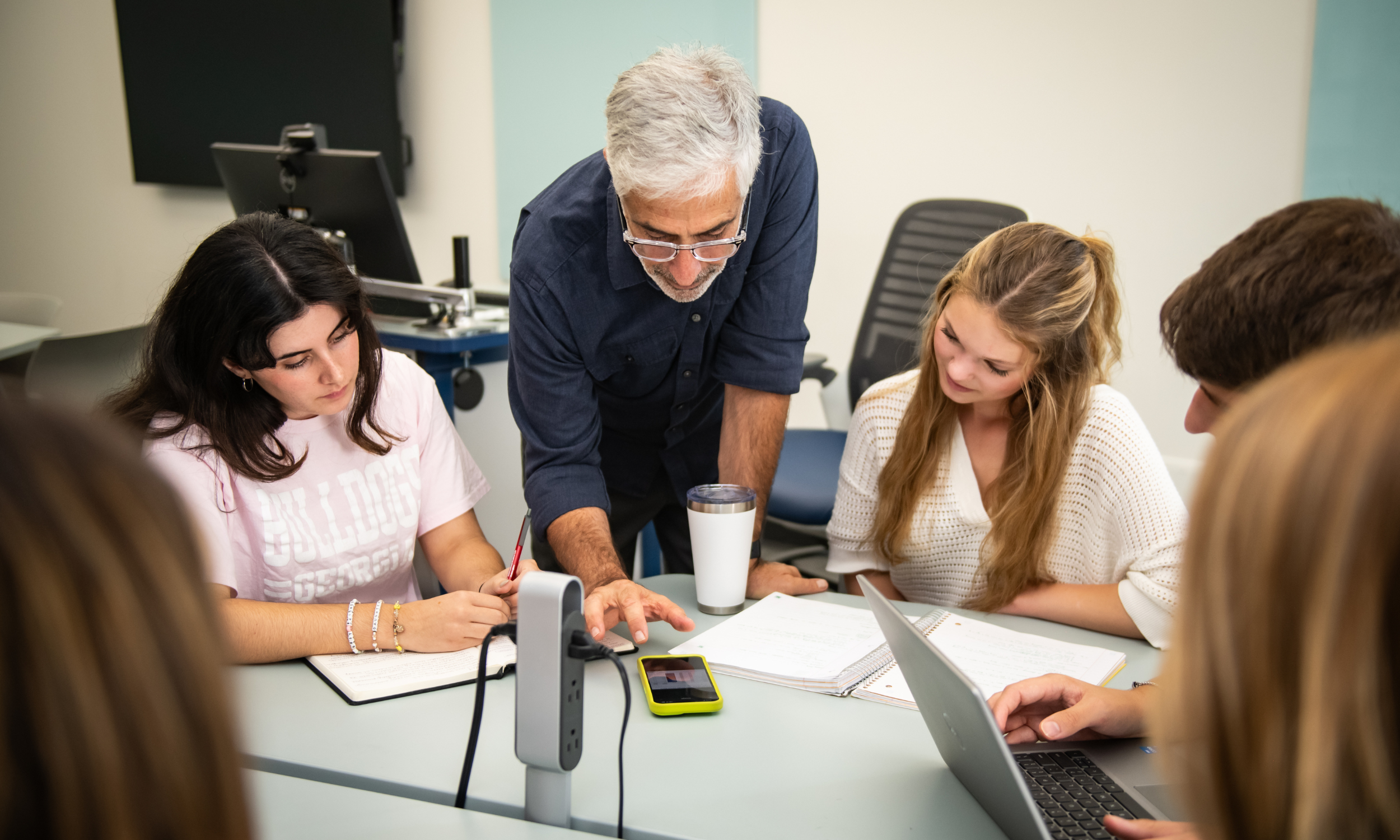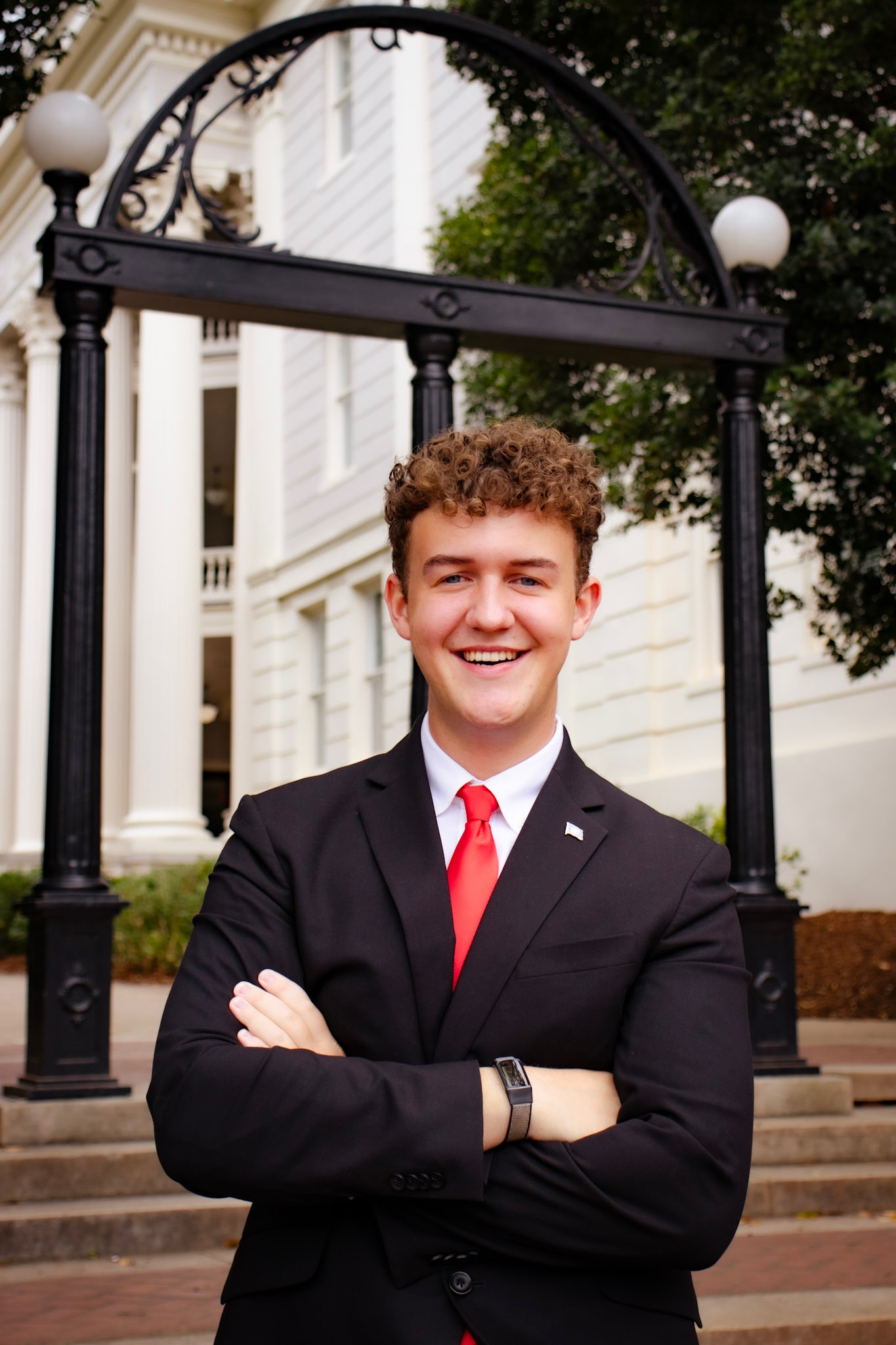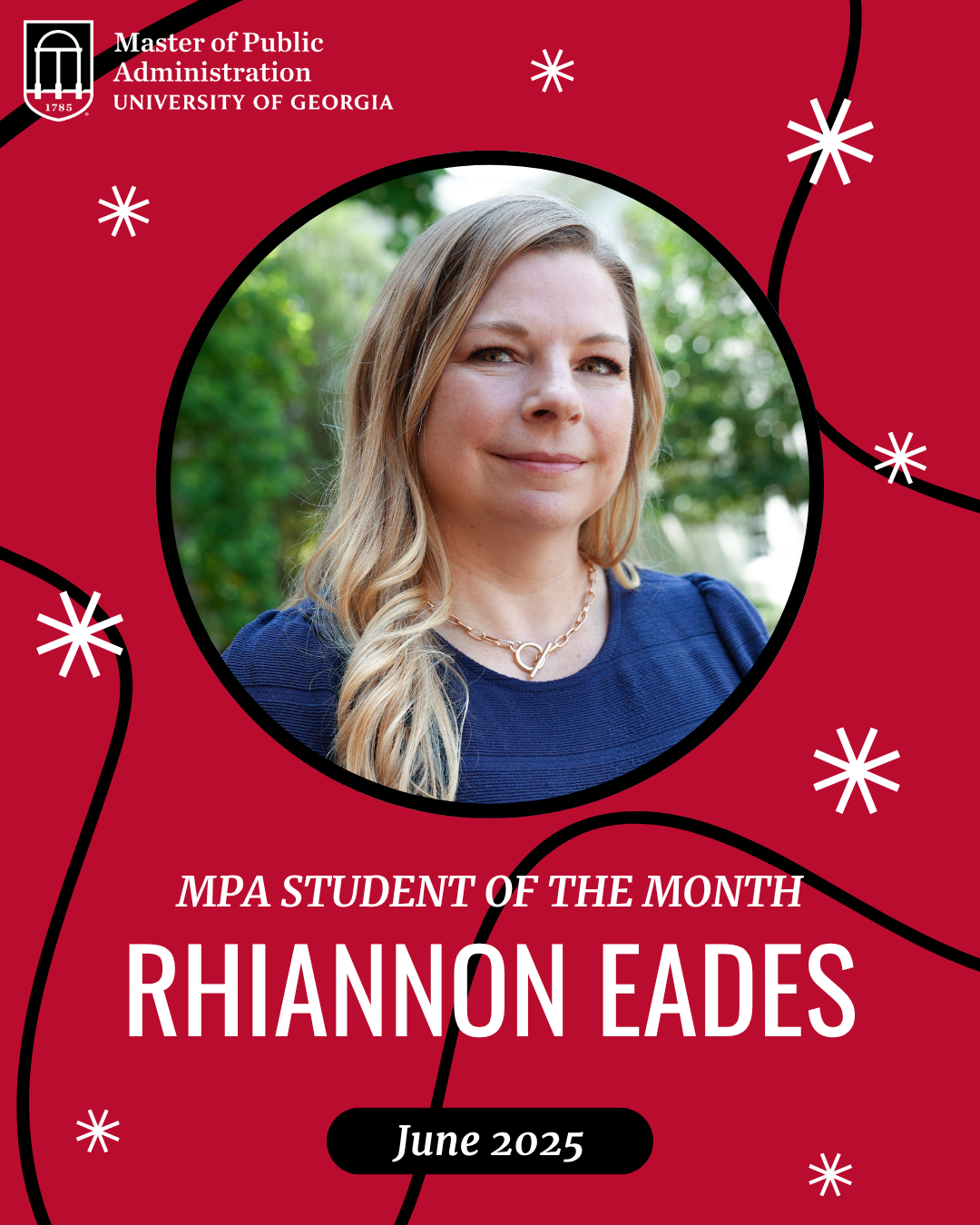
Jeremiah de Sesto gave himself a massive assignment for TEDxUGA: he sought to use the platform to both share his distinct cultural heritage and celebrate the future of discourse, policy, and lifelong learning.
The 2023 SPIA graduate, who studied management information systems, international affairs, and international business, seized upon this year’s 10th anniversary theme, “Roots,” to share the importance of maintaining these cultural connections and using them to listen, grow, and succeed.
“Being a first-generation Filipino American, my personal background has significantly influenced my understanding of identity, diversity, and the process of learning,” de Sesto shared. “We’ve all had times [when] our backgrounds and identities have been challenged or even disrespected. It is important to respect identity and the inevitable diversity that comes along with it, because it is a fundamental aspect of human dignity and equality.”
Identity, he continued, encompasses more than demographic checkboxes or buzzwords like race or culture. When de Sesto moved from the Philippines to Fort Lauderdale, Florida at eight years old, he brought along a generational appreciation for family, hard work, hope, and resilience.
However, he also carried with him a child’s concern, guilt, isolation, and longing for home. Other students made fun of his pronunciation, his appearance, and even the unfamiliar smell of the lunch his parents had so lovingly prepared.
“At the time, I was so confused as to why my parents would voluntarily choose to leave lives of comfort [to pursue] a life of unfamiliarity and tireless labor,” he said. “Was it really all worth it for me to receive a quality education in the United States?”
Little Jeremiah was struggling with these questions when he walked into his second-grade ESOL class and spotted the framed Italian phrase “Ancora Imparo” on the classroom wall: “And Yet, I Am Still Learning.”
“My teacher … would explain what that quote had meant to her,” he shared in the talk. “She said that ‘there will always be a concept, something that we don’t fully understand.’ She explained that no matter how many classes we took after hers, field trips we go on, that our stories are never-ending: there is an endless world of knowledge and experiences waiting to be explored.”
de Sesto warmed to the idea. He used the perspective to better understand his parents’ reasons for leaving his native country, find silver linings in his new situation, and approach his education with gratitude and passion. Most importantly, the first-generation college student cultivated a thirst for fresh knowledge that would follow him into adulthood.
That curiosity, he continued, is both the key to true personal fulfillment and the answer to political polarization tendencies that shut down dialogue and challenge consensus on problems and solutions.
“The message of “Ancora Imparo” serves as a constant reminder of our fallibility and the evolving nature of our understanding of complex issues,” said de Sesto. “Embracing humility, promoting dialogue, relying on evidence, fostering lifelong learning, and encouraging collaborative problem-solving can help us overcome political polarization tendencies and create an environment conducive to the development and implementation of effective national and international policies.”
Though humans are inherently fallible, with knowledge limited by our own experiences and perspectives, “Ancora Imparo” allows us to admit this shortcoming and transform arguments into opportunities to gain perspective and knowledge and reorganize our own opinions accordingly.
“Political polarization often arises from misunderstandings and poor communication among different groups,” de Sesto explained. “However, by embracing the principles of “Ancora Imparo,” individuals are more likely to engage in constructive dialogue and strive for a deeper understanding of differing viewpoints. This fosters empathy, bridges divides, and enables meaningful conversations that lead to compromise and consensus-building.”
The lifelong learning philosophy also has applications to the pursuit of knowledge itself, with its emphasis on evidence-based decision-making.
“By promoting the use of reliable data, research, and expert opinions, policymakers can make informed choices grounded in objective analysis rather than partisan ideologies,” said de Sesto. “This approach helps mitigate the influence of polarizing rhetoric and fosters policies that are more effective and beneficial for society as a whole.”
Finally, by seizing upon the fact that we are all still learning, de Sesto hopes to fight against those who dismiss the contributions of young achievers and advocates.
“In the past 10 years, youth have rallied around social issues only to be disparaged for mobilizing [in support of] gun control and climate change,” he shared in the talk. “Young people face accusations of not being able to fully understand complex political and social issues due to our age. If we challenge age, we challenge identity, and if we challenge identity, we challenge lifelong learning.”
de Sesto’s advice to the upcoming class of TEDxUGA presenters? Identify a topic that draws on both your passion and your expertise.
“Your genuine enthusiasm and deep understanding will lend credibility to your ideas,” he said. “Look for topics that are relevant and address pressing issues, with the potential to make a meaningful impact on the audience and resonate beyond the event. Aim for uniqueness and originality, offering a fresh perspective or unique angle on a familiar subject.”
de Sesto is still learning, in a very formal sense. This fall, he matriculated at Harvard University, where he is pursuing a Master’s in Public Policy and a Juris Doctor.
“My hope is to pursue a career in advocating for the fortification of basic rights for all people, while fighting to end graft and corruption in countries such as my birth country of the Philippines,” he said. He considers his identity, as a Filipino American, a young person, and a lifelong learner, to be incredible weapons in this fight.
“I look at the wastes [from my early years in America]: the wasted tears, the wasted food, and the wasted time I spent telling myself that my culture, my beliefs, my traditions were worth giving up for the acceptance of others,” he said. “I hope to tell folks that, rather than assimilate, we must unite in our differences.
“To this day, I am, you are, we are still learning.”








